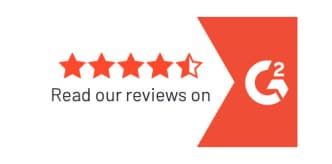Traditionally, 401(k) plans have centered around stocks and bonds, often following a 60/40 allocation strategy. This kind of asset allocation has historically returned about 8.8% annually from 1926 to 2023 based on U.S. market data. However, many investors and advisors are rethinking their retirement strategies by exploring alternative assets to diversify their portfolio and potentially enhance returns.
Legislation is evolving, and retirement plans are evolving with it. In 2020, the U.S. Department of Labor issued guidance allowing private equity investments within professionally managed 401(k) funds. This legislation opened the door for a broader range of investment options in retirement portfolios. Now, major financial firms like BlackRock are embracing alternative assets, and the momentum is accelerating. BlackRock recently announced plans to include private investments in its target date funds by mid-2026. Target-date funds are the default investment for millions of 401(k) participants, and BlackRock’s announcement reflects a broader trend toward modernizing 401(k) investing. By embedding private investments into professionally managed target date funds, they aim to offer the benefits of alternative investments without requiring participants to select them directly or monitor them consistently.
What are Alternative Assets?
Alternative assets are investments outside of the traditional public markets, like venture capital, private equity, real estate, and hedge funds. Access to these has been limited to institutional or ultra-wealthy investors in the past. That is starting to change.
Why Now?
Several factors are driving this shift:
- Diversification: Traditional 401(k) portfolios tend to rise and fall with public markets. Alternatives often behave differently, which can be a hedge against market volatility.
- Long-Term Return Potential: Private investments can deliver higher returns, though often with higher risk and longer holding periods.
- Evolving Investor Expectations: Today’s investors are more informed and more open to more sophisticated investment strategies.
What Plan Sponsors Should Consider:
- Liquidity: Private assets are often illiquid, which can create challenges with daily valued 401(k) plans.
- Transparency and Understanding: These investments are more complex and harder for participants to understand, so education is key.
- Fiduciary Oversight: Sponsors remain responsible for ensuring all plan options are in the participants’ best interest.
Alternative Assets are Not for Everyone
While alternative assets may offer potential long-term upside, they come with added complexity, limited liquidity, and higher risks. Alternative assets may not be suitable for most people, and their role in 401(k) plans is still evolving. Anyone considering these potential options should do so cautiously and may want to consult with a financial advisor to ensure the strategy fits their goals and risk tolerance.
Alternative assets aren’t a replacement for traditional 401(k) options, but they can be a smart addition. With major players leading the way and regulations evolving to support innovation, the retirement landscape is shifting, and smart investors are staying informed.



